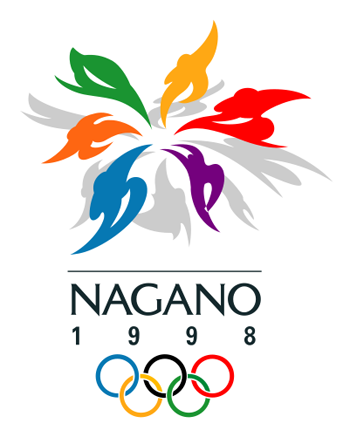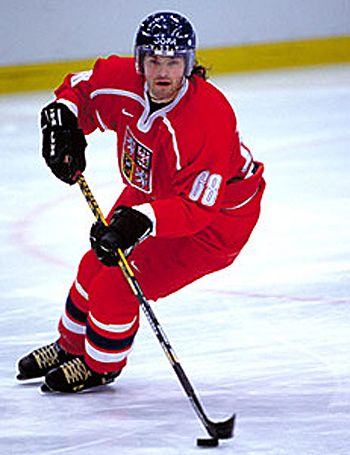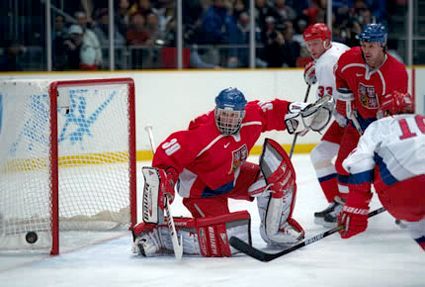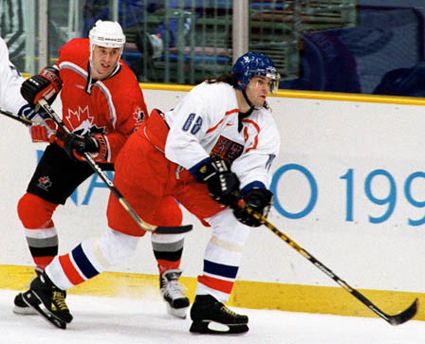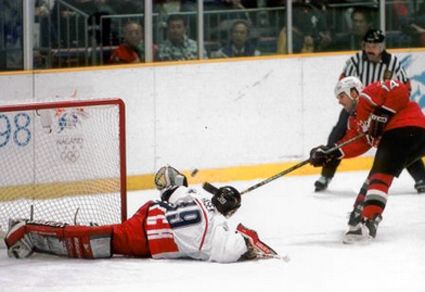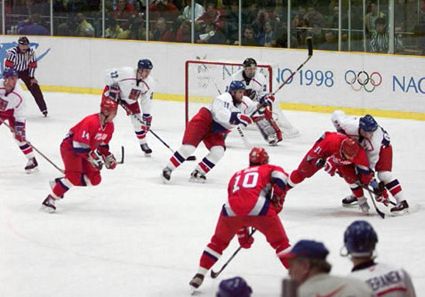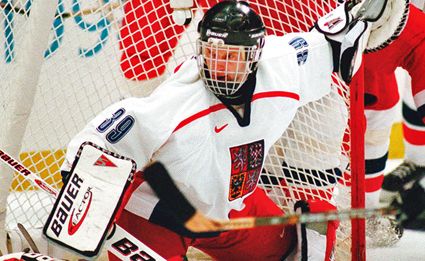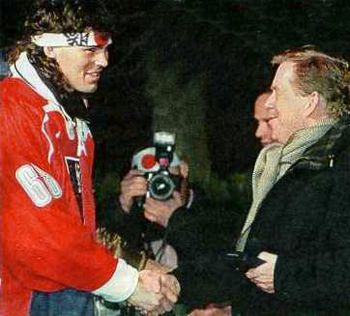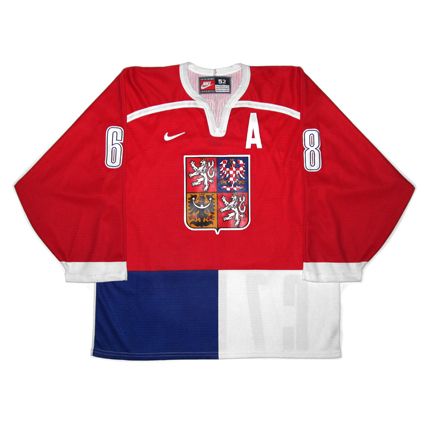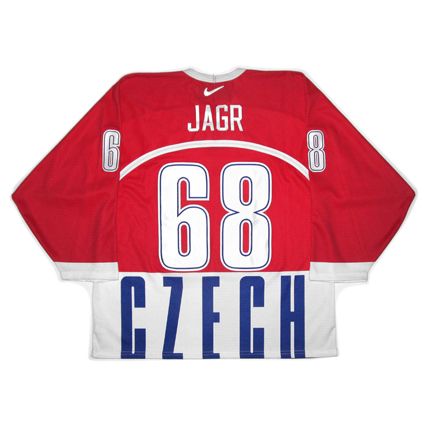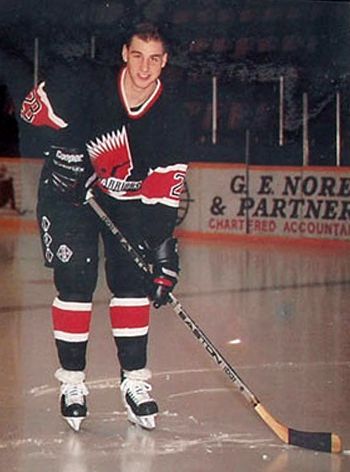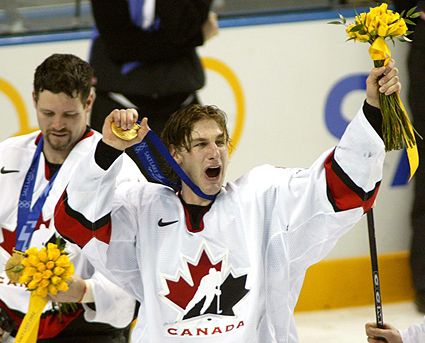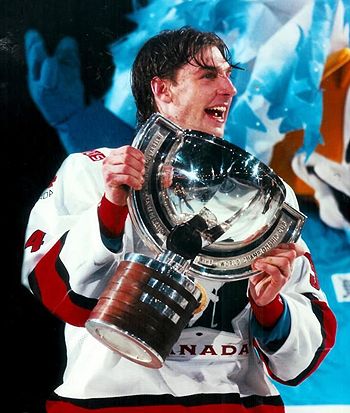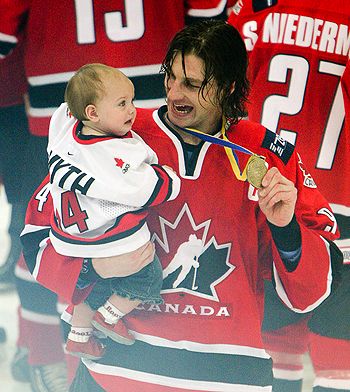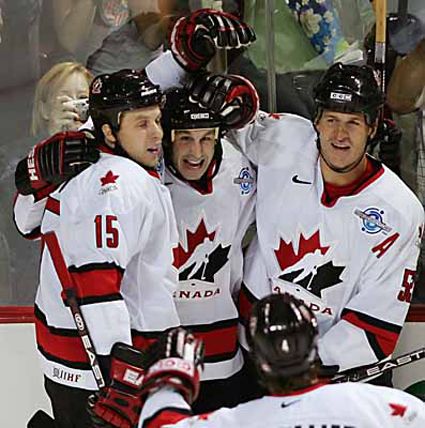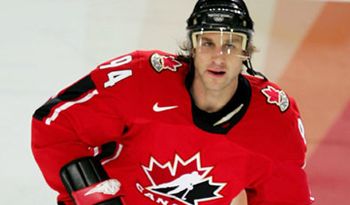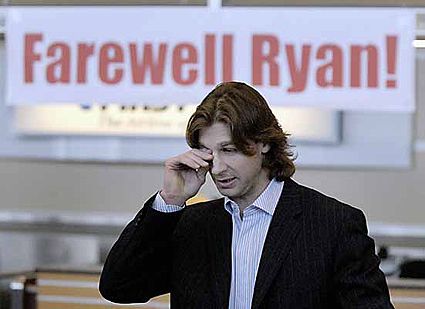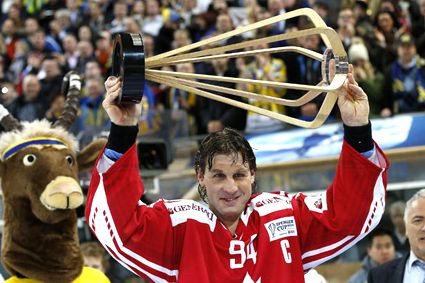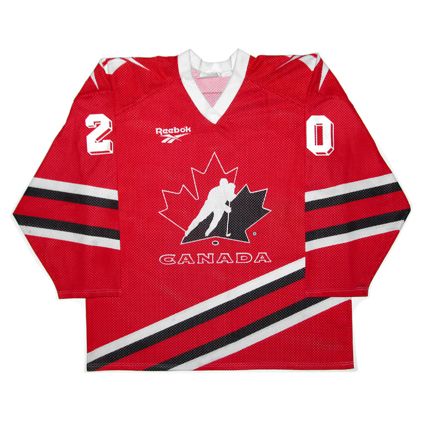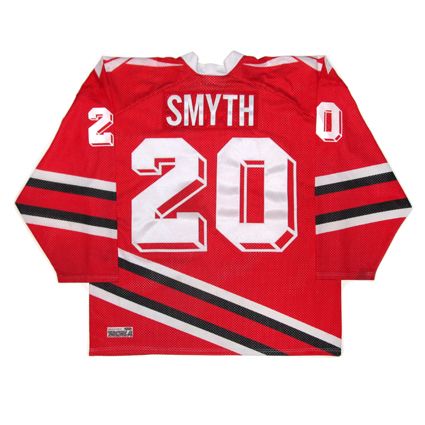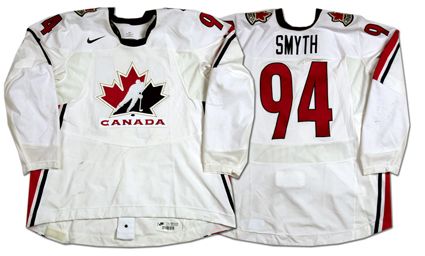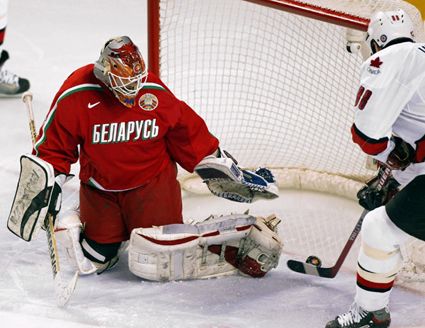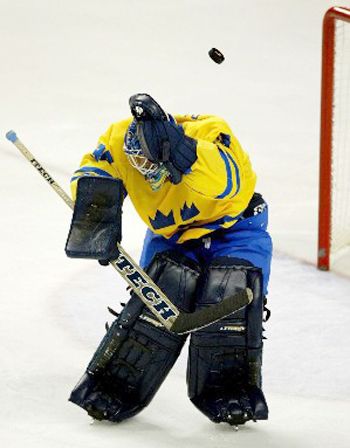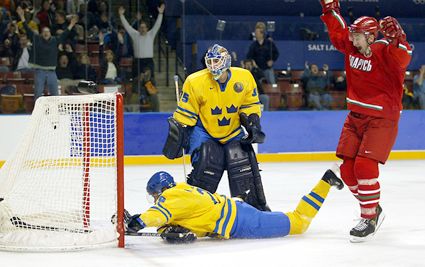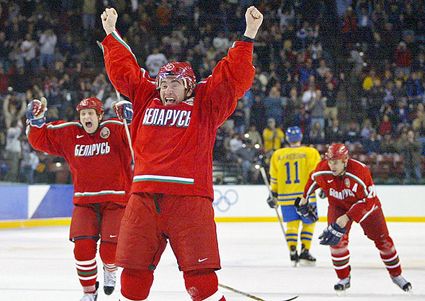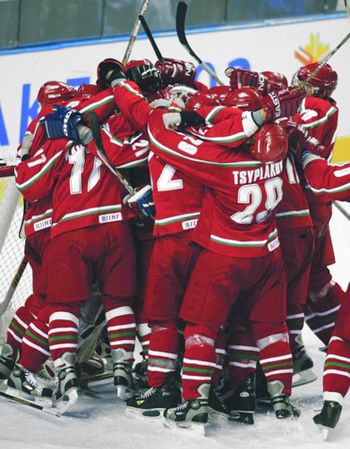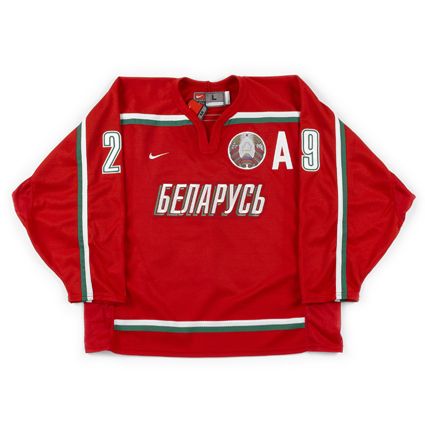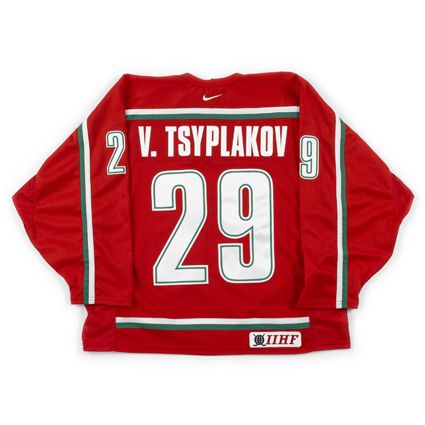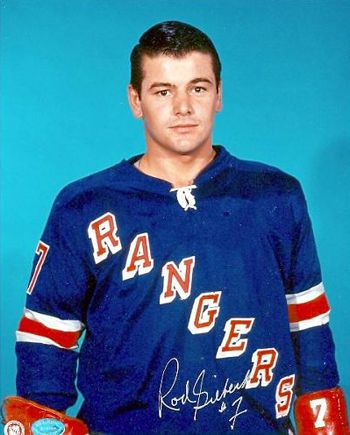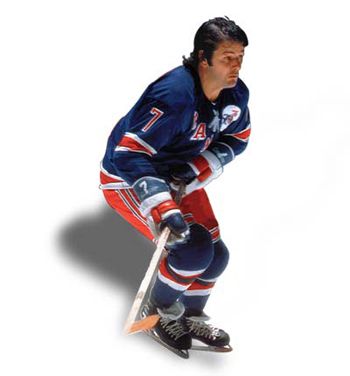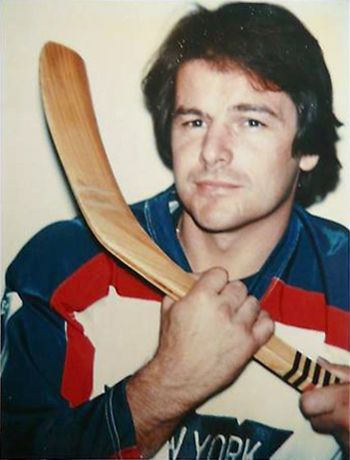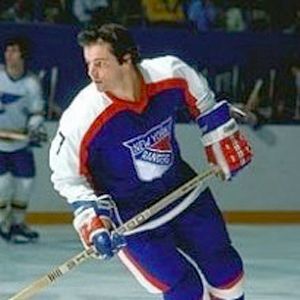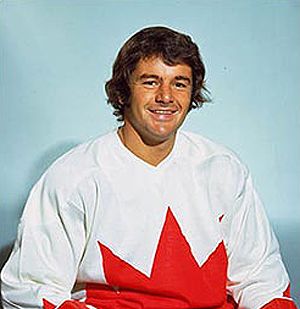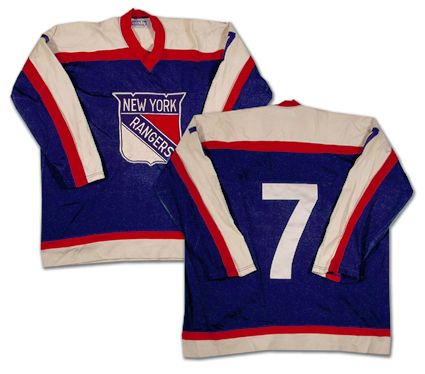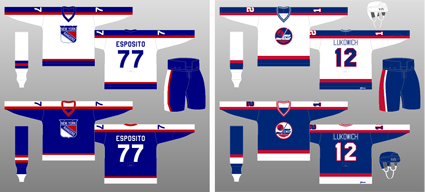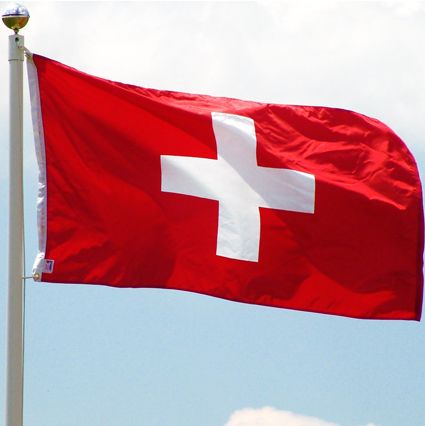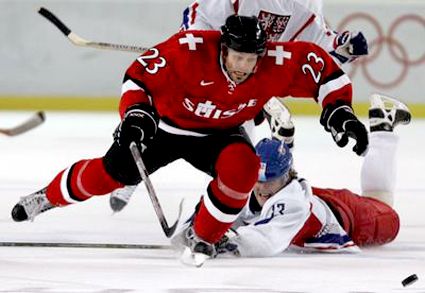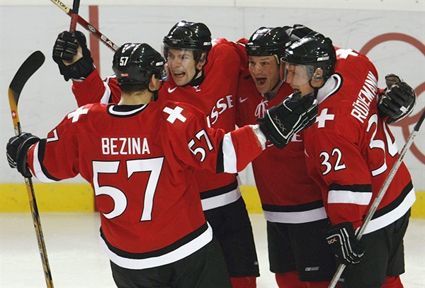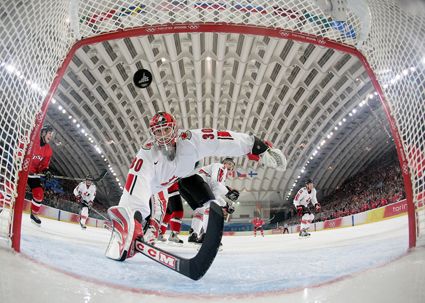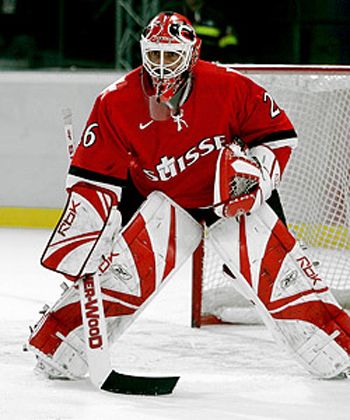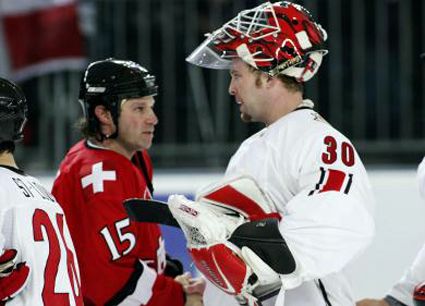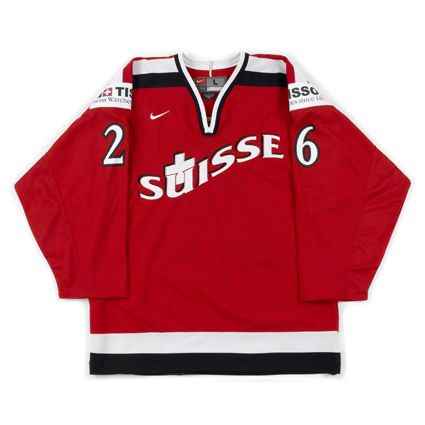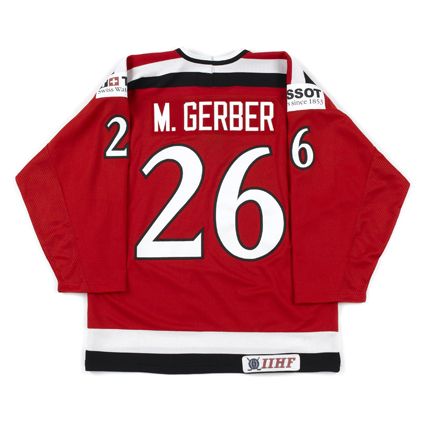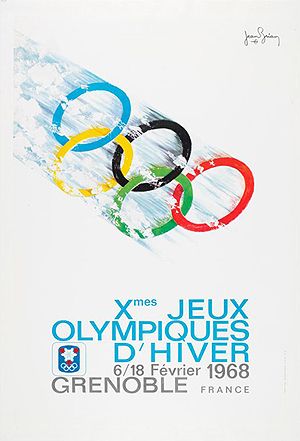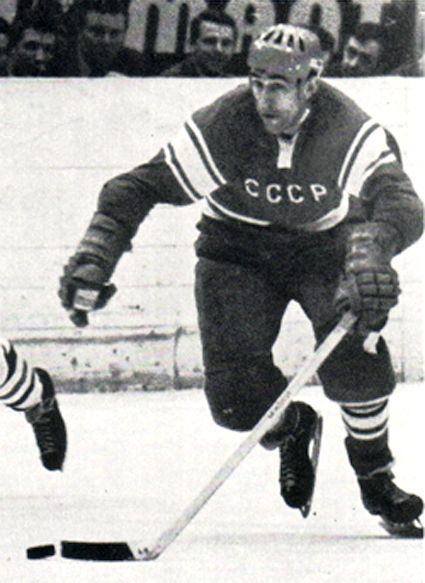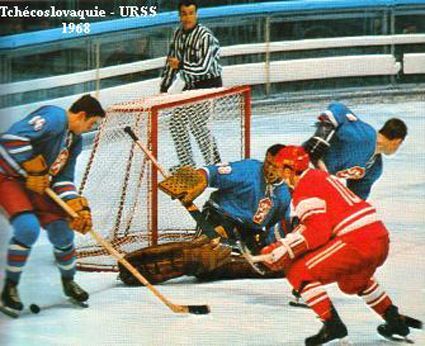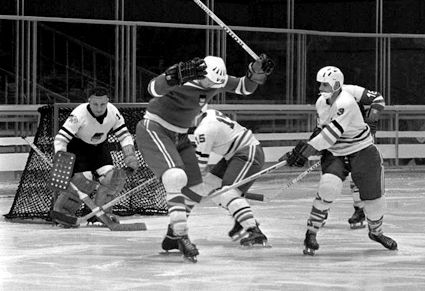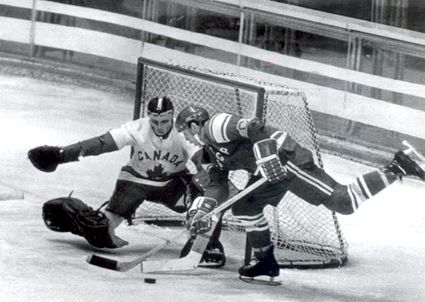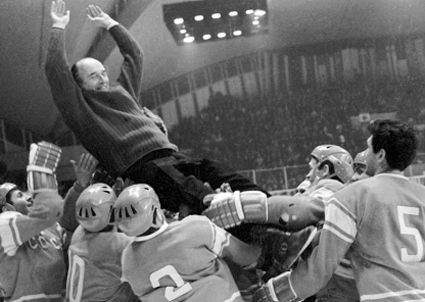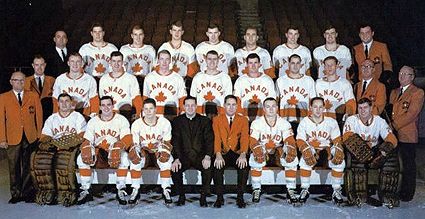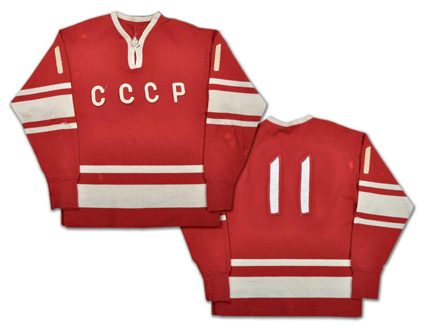Having scored 50 goals and 105 points for the Moose Jaw Warriors of the WHL during the 1993-94 season,
Ryan Smyth was named to the Canadian World Junior squad for the 1995 tournament, held in Red Deer, Alberta, just 2 1/2 hours from his birthplace of Banff.
Smyth played his junior hockey for the Moose Jaw Warriors
Canada rolled to a perfect 7-0 record to give Smyth his first gold medal upon his international hockey debut. Smyth was tied for seventh in team scoring with 2 goals and 5 assists in the seven games.
Following the World Juniors, Smyth would return to Moose Jaw to finish the 1994-95 season, and when the Warriors were eliminated from the WHL playoffs, Smyth would make his NHL debut with the Edmonton Oilers, appearing in three games.
After playing four seasons for the Oilers, including two Conference Semifinals appearances in 1997 and 1998, the Oilers were eliminated quickly from the 1999 playoffs, freeing up Smyth for his first World Championships, which were held in Norway. Canada missed out on a medal by dropping the bronze medal game to Sweden 3-2.
Smyth returned to the World Championships again in 2000 in Russia. Canada suffered through a rough First Round, losing to both Norway and the Czech Republic, but advanced to the Second Round, where they righted their ship with wins over Finland, Italy and Slovakia to advance to the Final Round knockout playoffs. Despite defeating Switzerland, they again fell to the eventual champion Czechs prior to losing in the bronze game for the second year in a row in a rematch with Finland. Smyth's final stats were 3 goals and 9 points in 9 games, which would prove to be a career high.
For the 2001 World Championships, Smyth was named team captain for the event in Germany. While Smyth contributed 2 goals and 5 points in seven games, A Quarterfinal loss to the United States left Canada out of the medals with a 5 place finish.
Smyth, born on this date in 1976, was named to the 2002 Canadian Olympic Team for the games in Salt Lake City, his first Olympic appearance. The Canadians stumbled out of the gate, losing to Sweden 5-2 in their first game, eked out a narrow 3-2 win over Germany and then tied the Czech Republic, but came alive in the final round playoffs, first defeating Finland 2-1 before being handed a gift when Belarus shockingly eliminated the number one ranked Swedes. With Belarus demolished 7-1, Canadian confidence was high and they captured the gold medal with a 5-2 win over the host United States just three days shy of Smyth's birthday.
Smyth is exuberant after winning the 2002 Olympic gold medal
Two months later, Smyth was back at the World Championships, again as team captain. Smyth contributed 4 goals as the Canadians cruised to a 4-1 record before losing by a goal to the eventual champion Slovaks in the Quarterfinals.
Smyth was back again for the 2003 World Championships in Finland. They reached the playoffs with a 4-0-1 record and defeated Germany 3-2, the Czech Republic 8-4 and then downed Sweden 3-2 to claim the title and Smyth's first World Championship gold medal, as he had the honor of hoisting the championship trophy as the team captain. The gold medal was Canada's first since 1997. Smyth totaled 2 goals and 4 points in the effort.
Smyth with the World Championship trophy in 2003
He was back again as captain in 2004 and, following 3-1-1 early results, Canada knocked out Finland 5-4, got by Slovakia 2-1 and then claimed back-to-back world championships by defeating Sweden for the second year in a row, this time 5-3. Smyth again had 2 goals and 4 points during the tournament.
Smyth shares a moment with his daughter
after winning the 2004 World Championships
Later that same year, Smyth once again was putting on the maple leaf for his country, this time at the 2004 World Cup of Hockey where he contributed 3 goals and 4 points. Playing in front of the home fans in Montreal and Toronto, Canada won the North American pool with a 3-0 record before a dominating 5-0 win over Slovakia, followed by a 4-3 overtime thriller against the Czech Republic before capturing the championship with a 3-2 win over Finland.
Ryan Smyth congratulated after a goal during the 2004 World Cup
With the NHL players being locked out by the owners preventing the NHL season from taking place after the World Cup, Smyth was available for World Championship duty in Austria that spring. He was named team captain for the fifth consecutive year, which earned him the nickname "Captain Canada". After going 3-0 in the First Round, a 1-1-1 Second Round saw Canada needing to regain their form, which they did with wins over Slovakia (5-4) and Russia (4-3) before losing in the finals to the Czechs, which gave Smyth his first sliver medal, having won gold in his previous five finals.
Smyth made his second Olympic appearance at the 2006 Games in Torino, Italy but the Canadians fell short in the Quarterfinals to Russia 2-0 to finish out of the medals.
Smyth at the 2006 Olympic Games
The 2002-07 season was Smyth's 12th with the Oilers, but after 53 games he was dealt to the New York Islanders in an emotional moment for Smyth. He would finish the season with the Islanders before moving to the Colorado Avalanche for the next two seasons and then joined the Los Angeles Kings for the 2009-10 season. Following the regular season, Smyth was call upon by Canada for the first time in four years for the World Championships in Germany, where he was named team captain for the sixth time. Unfortunately for Smyth, he suffered an ankle injury during the Canadians first game, which kept him out of the remainder of the competition.
Smyth wore his emotions on his sleeve when he left Edmonton
After another season with Los Angeles, Smyth returned to the Oilers for the 2011-12 season, but the start of the 2012-13 season was delayed after New Year's by another lockout. With no NHL season occupying his time at the close of 2012, Smyth was once more wearing not only the red and white of Canada, but the familiar captain's "C", only this time for the Spengler Cup tournament, held each year in Davos, Switzerland.
Loaded with otherwise unavailable
NHL caliber talent, such as
Jason Spezza,
John Tavares,
Tyler Seguin,
Matt Duchene and
Patrice Bergeron, Canada opened with an overtime loss to Adler Manheim of Germany, but won the group with a 5-0 win over HC Davos. They built off that momentum and advanced to the finals with a 5-1 win over HC Fribourg-Gotteron of Switzerland and won the Spengler Cup with a second 5 goal win over Davos, this time by a score of 7-2 as Smyth scored twice in the final, including the game winner.
Ryan Smyth lifts the Spengler Cup
To date, Smyth has competed at one World Junior tournament, eight World Championships, captaining the team six times, two Olympics and one World Cup for a total of 85 games played scoring 20 goals and 44 points. He has now won an Olympic gold medal, two World Championship gold medals and one silver, a gold at the World Juniors, the World Cup and the Spengler Cup during his international career.
Today's featured jersey is a
1995 Canada National Team Ryan Smyth jersey from his first international tournament, the 1995 World Juniors where he earned his first gold medal out of four. This jersey would mark the first appearance of the red and black Hockey Canada logo on a Canadian National Team jersey. This style of jersey was only used for one year, having been used for the World Juniors and World Championships until Reebok was replaced by Nike as suppliers of jerseys to the IIHF beginning in 1996.
Bonus jersey: Today's bonus jersey is a
2006 Canada National Team Ryan Smyth jersey as worn at the 2006 Olympics in Torino, Italy. The new Nike Swift styles made their international debut at the 2006 World Junior Championships with Canada and the USA in advance of being the predominant style worn at the Olympics five weeks later.
In Torino, every team, save Sweden and Switzerland, were wearing the new Swift styles, with all teams having changed over by the World Championships in May.
Our video section today begins with highlights of the gold medal game of the 2003 World Championships, Canada's first since 1997.
Next up is Smyth captaining Canada to back-to-back world championships with a victory in 2004.

